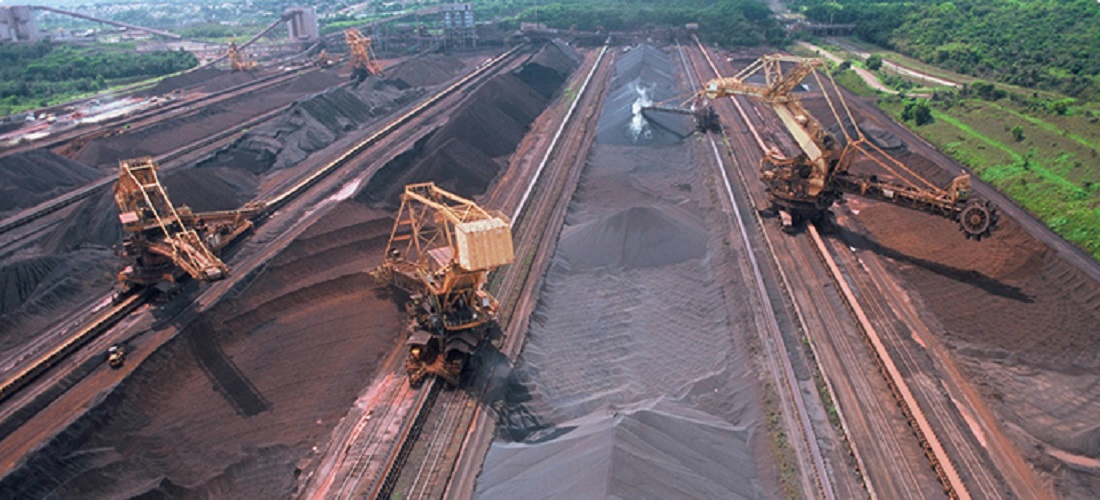
Mining companies improve logistics to ensure exports
Sep, 19, 2024 Posted by Sylvia SchandertWeek 202438
In a significant development, iron ore exports surged by nearly 10% in 2023, reaching a staggering 378.3 million tons, while revenues saw a commendable 5.6% increase, totaling US$ 30.5 billion. The foreign sales from January to August this year stood at 252.7 million tons, a 6.1% increase from the same period in 2023, generating revenues of US$ 20.7 billion, a growth of 9%. This remarkable growth underscores the strategic importance of infrastructure.
‘Vale continually invests in improving and expanding its port and railway infrastructure to enhance transportation capacity and efficiency,’ says Vagner Loyola, director of the company’s integrated ferrous value chain. From 2012 to 2023, Vale invested around R$ 50 billion in ports and railways. It now expects to invest an additional R$ 24.7 billion, of which R$ 11.8 billion will be for the early concession of the Carajás railway, connecting mining provinces in Pará to the port of Itaqui (MA) and Vitória Minas—linking Minas Gerais to Espírito Santo. An additional R$ 9.3 billion is allocated for the construction of the Central-West Integration Railway.
MRS Logística, responsible for transporting iron ore from Usiminas and CSN, focuses on modernizing its 1,643 km of tracks that traverse 107 cities in Minas Gerais, Rio de Janeiro, and São Paulo. The company also transports mineral products through the Rio de Janeiro ports of Itaguaí and Mangaratiba.
“In 2023, the company invested R$ 1.8 billion, primarily focusing on business sustainability and compliance with regulatory obligations, as well as expanding the capacity of railway access to Baixada Santista [SP],” says Raphael Steiman, commercial director of MRS. This year, it invested another R$ 1 billion in the purchase of new wagons and locomotives.
Logistics is also crucial for Bahia Mineração (Bamin), says Eduardo Ledshman, CEO of the Brazilian subsidiary of Kazakhstan’s Eurasian Natural Resource Corporation. In 2023, Bamin invested R$ 1.8 billion in an integrated project that includes the West-East Integration Railway (Fiol), which spans 537 km, along with connections to the Pedra de Ferro Mine in Caetité and Porto Sul in Ilhéus (BA). “The forecast is that 200 packages for engineering, personnel, suppliers, and material procurement will be launched on the market during the project’s implementation, totaling R$ 25 billion by 2027,” says Ledshman.
A joint venture between Anglo American and the Brazilian company Prumo Logística, Ferroport decided to invest R$ 125 million to ensure the entire operation of the iron ore terminal at Porto do Açu in São João da Barra (RJ). The terminal receives product via a 529 km pipeline connecting an Anglo American mine in Conceição de Mato Dentro (MG) to the port. “The main challenge is to ensure the annual movement of 30 million tons of cargo using the current infrastructure,” says Carsten Bosselmann, CEO of Ferroport.
The American company Alcoa is experiencing a resurgence with the resumption of operations at the Alumar aluminum plant in Maranhão, which currently has a capacity of 3 million tons per year. To maintain this operational capacity, the company announced an investment of approximately R$ 1 billion to establish its fleet of four vessels for cabotage operations in the Amazon this year. The expectation is that these vessels will transport approximately 6 million tons of bauxite per year from the Juruti mine in Pará to the Alumar refinery in São Luís, from where much of its production is exported. “The incorporation of vessels into our fleet is an unprecedented step for Alcoa in Brazil and is part of the beginning of our vertical integration process further to link operations between the mine and the refinery,” says Daniel Santos, the company’s president.
While the private sector is making significant investments in logistics and transportation infrastructure, the government is playing a crucial role in supporting these efforts. According to Alex S. de Ávila, national secretary of Ports at the Ministry of Ports and Airports, the government is actively encouraging companies in their capacity expansion plans by analyzing and expediting projects and providing resources. He notes that the federal government intends to conduct 35 lease and concession auctions by 2026, with at least two in key areas: the ports of Itaguaí (RJ), with an expected investment of R$ 3.5 billion for a new terminal, and Vila do Conde in Barcarena (PA), with an anticipated investment of R$ 1 billion. ‘The goal is to increase the capacity to support Brazilian mineral exports,’ states the secretary, reassuring stakeholders about the industry’s future.
Despite the industry’s significant growth and the ongoing efforts to improve logistics and transportation infrastructure, there are still significant challenges that need to be addressed. Julio Nery, sustainability director at the Brazilian Mining Institute (Ibram), points out that the limited capacity and restricted flow options, along with competition with other cargo, poor road networks, high transportation costs, and a complex, bureaucratic export system, pose significant challenges to the competitiveness of the mining sector in the country. ‘Fundamentally, highways are still essential, especially for minerals like lithium in the Jequitinhonha Valley, in Minas Gerais. These roads require improvements for both production flow and the receipt of inputs at operational units,’ he asserts, providing a balanced view of the industry’s current state.
Source: Valor Econômico
-
Shipping
Apr, 08, 2024
0
Containers offloaded from stricken boxship in Baltimore
-
Jun, 13, 2024
0
Brazil’s Papaya exports surge 12% year-on-year
-
Ports and Terminals
Jan, 17, 2022
0
Omicron cases detected in Shenzhen and Beijing
-
Ports and Terminals
Dec, 13, 2022
0
Port of Montevideo consolidates in regional trade

